 Petzlover
PetzloverCordoba Fighting Dog is originated from Argentina but Sarplaninac is originated from Macedonia. Both Cordoba Fighting Dog and Sarplaninac are of same height. Cordoba Fighting Dog may weigh 10 kg / 23 pounds more than Sarplaninac. Both Cordoba Fighting Dog and Sarplaninac has same life span. Both Cordoba Fighting Dog and Sarplaninac has same litter size. Cordoba Fighting Dog requires Low Maintenance. But Sarplaninac requires Moderate Maintenance
The Cordoba Fighting Dog is believed to be an extinct dog breed, but research will reveal that there are still those who believe that some of these dogs do still exist.
The dog was regarded as an aggressive, fighting dog and was a crossbreed of the Mastiff, Bull Terrier, Boxer and Bulldog.
Known also as the Argentine Fighting Dog or the Perro de Presa de Cordoba, this dog comes from Argentina where it was used for dog fighting, hog hunting as well as being a guard dog. It is thought that it became extinct in the 20th Century.
Breeders in Cordoba worked at developing a new fighting breed of dog based on the Bull Terrier. The breed became known as the Perro de Presa de Cordoba or Fighting Dog of Cordoba. He resembled the Bull Terrier and came in shades of fawn and brindle, although Argentine fanciers preferred the plain white dogs.
Over breeding for white coated dogs led to skin problems and other health problems, making it that except for fighting, the dog wasn’t in demand elsewhere. As fighting of dogs became more frowned on, the dog became extinct.
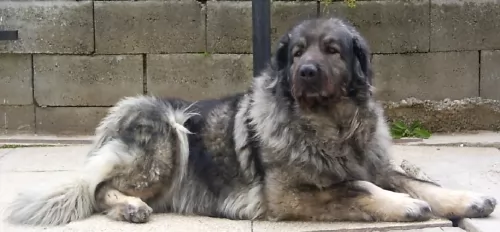 Hailing from Macedonia, the beautiful Sarplaninac dog was developed as a guardian of livestock and is large enough to fight off large predators like bears and wolves.
Hailing from Macedonia, the beautiful Sarplaninac dog was developed as a guardian of livestock and is large enough to fight off large predators like bears and wolves.
Nobody is too sure of the breeds exact origins, though it is thought that its ancestors came to the Balkan Peninsula with people migrating from ancient Asia.
This huge dog is one of the oldest native breeds from ancient Molosser breeds. The dog was recognized in 1939, and in 1954 it became known as the Yugoslav Shepherd Dog. Later the name changed and the dog was recognized by the United Kennel Club in 1995.
The Cordoba fighting dog is a mixed breed. Bull Terrier, Mastiff and Bulldog make up this dog breed.
He was a large dog, standing at between 58 and 62cm and weighing between 32 to 55 kg. He was lean and muscled with a wide chest and small ears that were cropped. His powerful jaws were to be avoided as once they settled around another dog’s throat, the grip was vice-like. The dog’s coat was short and was essentially white with black marks on the body and around the head.
A Cordoba Fighting Dog is aggressive and strong. While most dogs benefit immensely from training and socialization, these dogs, even with training, remained somewhat aggressive, so they were no doubt not a good choice for first time dog owners, or for those with children in the home. Also the dog was always aggressive towards other dogs.
You could safely say that if these dogs were around today, they would not be looked upon as the ideal family pet.
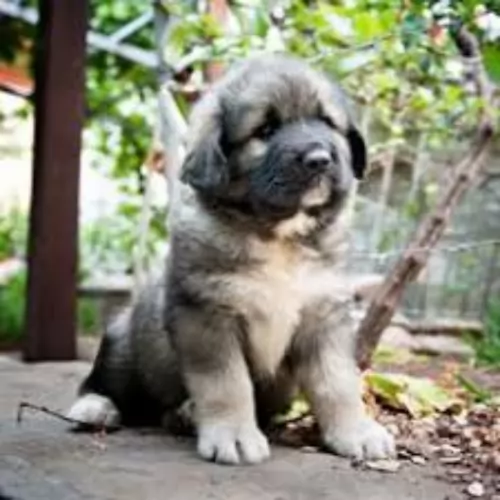 The Sarplaninac is a large, strong, fluffy dog standing at between 54 and 62cm in height and weighing between 30 and 45kg.
The Sarplaninac is a large, strong, fluffy dog standing at between 54 and 62cm in height and weighing between 30 and 45kg.
The coat of the dog is dense, coarse and of medium length. Colors are different shades of grey, white, tan and black. The head is large, the ears are fairly short but are floppy and covered with short hair. The dog is deep chested and the tail is long, often held high and covered with thick, feathery hair.
Protective, reliable, reserved, stubborn and gentle, this intelligent dog is fairly serious, and while he makes a devoted family pet, he is cool and wary of strangers.
Excellent training and socialization makes him well mannered, balanced and obedient around different people. He will tolerate children but won’t take easily to other pets in the house, capable of becoming aggressive with them.
The Cordoba Fighting Dog was a hunter and also a fighting dog. It was a fierce, aggressive dog, and while he may have formed a bit of a bond with his owner, he wouldn’t have made a good family pet.
With an unstable temperament, who knows when he could have turned on his owner or the owner’s family? Certainly he wouldn’t have tolerated any other pets in the home.
Perhaps it is better if he has become extinct because dog fighting is abhorrent and hopefully being banned today, and he would never have been much good as a family pet.
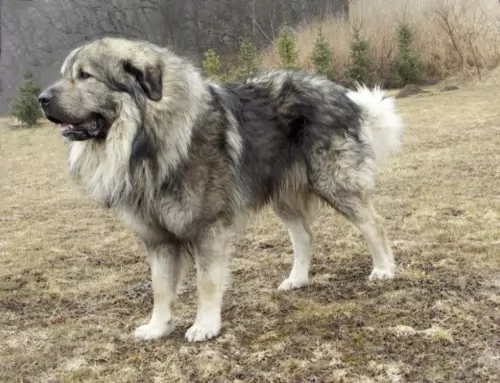 These dogs are protective, but they’re not vicious. When properly raised they are wonderful family pets.
These dogs are protective, but they’re not vicious. When properly raised they are wonderful family pets.
True, it’s a large, strong willed dog that isn’t a good choice for the first-time dog owner. They are good with children, but only children who have been taught how to treat animals with care and patience.
This dog is a powerful guardian type of dog, imposing in size, but it’s all about upbringing, and if you bring him up well then he can make a tremendous pet and companion.
The Cordoba Fighting Dog was a generally healthy breed but even so, its very lifestyle made it want to gobble down his food without much chewing. This possibly resulted in a number of problems such as bloat.
Bloat is a serious condition which the Cordoba had to deal with and which happens with modern day dogs too. It is an ailment not to be taken lightly. Your dog will need to get to the vet as soon as possible. The dog’s stomach fills with gas, which can also result in the stomach twisting.
When the stomach fills with gas, pressure is put on the diaphragm, making it difficult for the dog to breathe. The dog’s abdomen is swollen, he has difficulty with breathing and he will likely be drooling. It is an ailment which can happen to any breed of dog, regardless of age. Larger dog breeds, however are more prone to it.
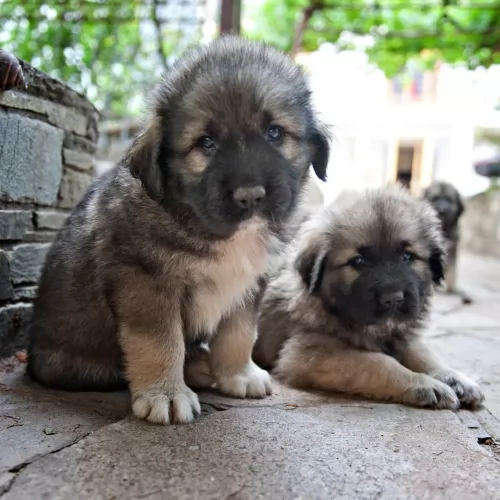 The Sarplaninac dog is a robust dog but he can suffer from health issues such as hip dysplasia, obesity, bloat, ear infections and skin allergies.
The Sarplaninac dog is a robust dog but he can suffer from health issues such as hip dysplasia, obesity, bloat, ear infections and skin allergies.
When your dog gazes up at you with such love in his eyes, don’t be tempted to pop some chocolate into his mouth or let him finish off your ice-cream. Treats like this can damage your pet’s health and give him heat intolerance, breathing difficulties, hypertension, liver disease and diabetes.
The Cordoba Fighting Dog was a short haired dog and no doubt his owner would have given him a brush down every now and then to keep him looking presentable.
The Cordoba was used for fighting to the death with other dogs, so a strong dog like this will have required a high-protein diet. The owners particularly wouldn’t have wanted a dog with hip- and elbow dysplasia and they would have ensured a good choice of raw meat, cooked brown rice and vegetables.
Manufactured dog food started emerging about the mid-1800s and the dogs would have been fed this, made up of wheat meals, meat and vegetables which was then mixed with cooked meat and vegetables.
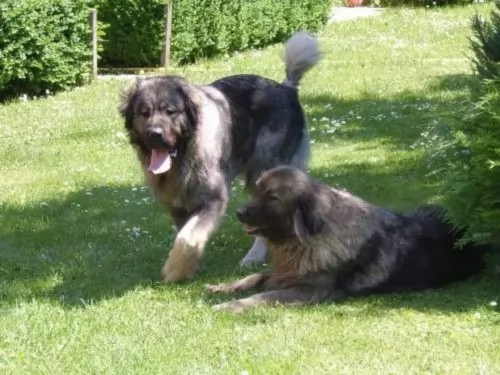 Every dog needs care from puppyhood through to old age.
Every dog needs care from puppyhood through to old age.
Šarplaninacs are looked upon as medium maintenance dogs. The coat is long and thick and requires a firm bristle brush to get their hair brushed.These dogs are moderate shedders so a brush twice a week will do the trick to keep the hair free of loose hair and matting.
Because these dogs have floppy ears, they will need to be checked and cleaned. Floppy eared dogs battle with moisture and wax build-up that increases the likelihood of ear infections.
Check the eyes that they are clear and free of discharge. Eyes with a lot of discharge can be indicative of health problems.
Check for any unusual lumps as cancer often starts with a new lump.
Provide your pet with a nice warm, dry place to sleep.
Keep his vaccines up to date to prevent deadly canine diseases.
Have him or her spayed or neutered if you don’t want puppies. These are regular procedures for a vet and offers health benefits for the dog. Neutering a male improves his character and keeps him from roaming. These dogs are capable of having 3 – 8 puppies.
The Sarplaninac requires decent food if he is to remain healthy. Dog’s stomachs can become upset if they eat all kinds of sweet and spicy human foods.
Commercially manufactured dog food is a good backup food to have because of its convenience. Try to include some home-made food. Simply add into one big pot chicken, brown rice or pasta and spinach, sweet potatoes and carrots. This food can all be chopped up and added in to the dry kibble twice a week. Give this to your pet twice a week and see how his tails wags when he smells it.
Also try to add in some raw meat to his food occasionally.
Ensure there is always a bowl of fresh, cool water within his reach.